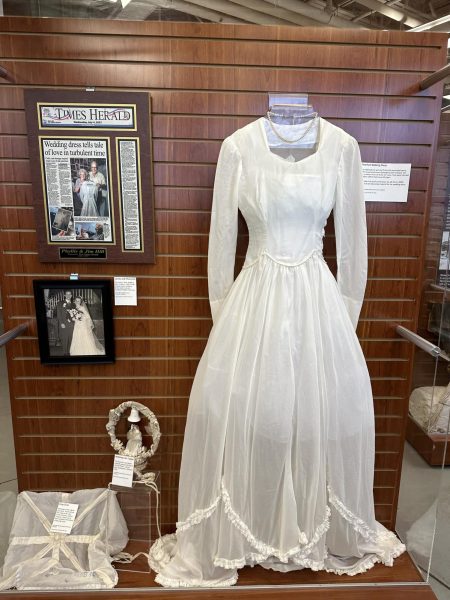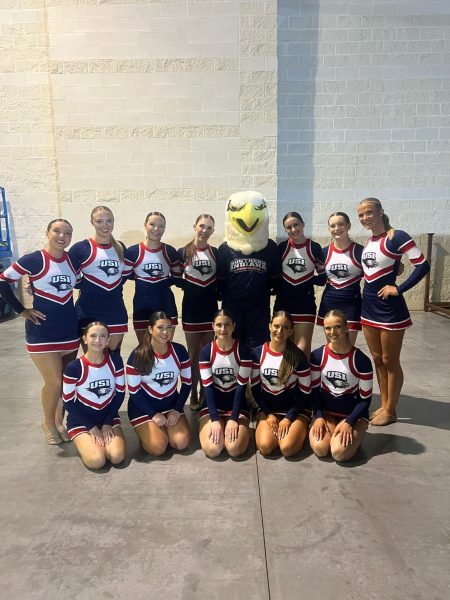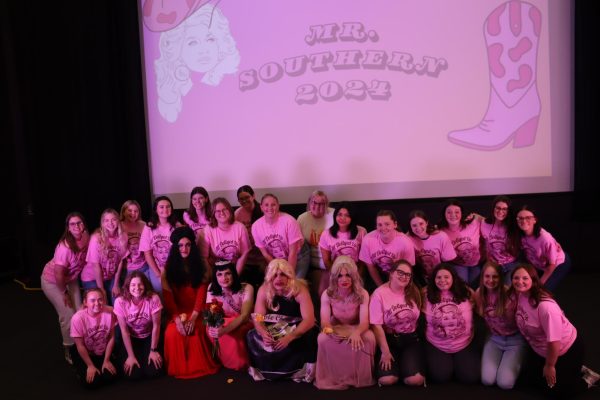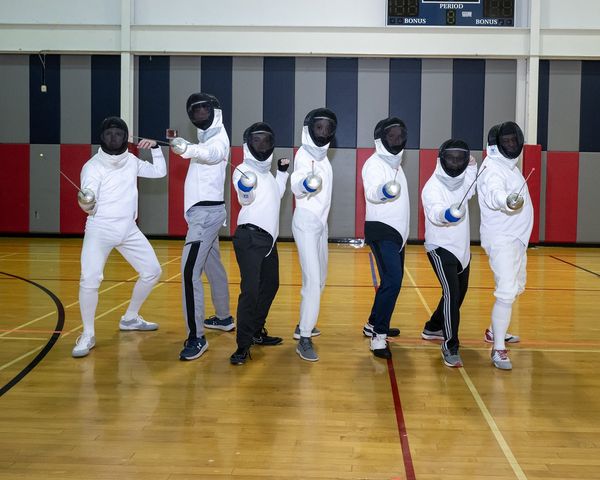Production to challenge autism stigma
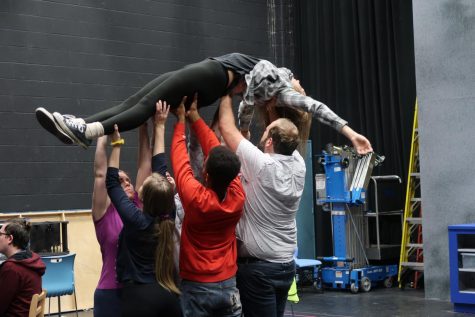
“The Curious Incident of the Dog in the Night-Time” will show 7 p.m. Nov. 15-17 and 2 p.m. Nov. 18.
Isabelle Rogers has learned to channel her inner smoker. The junior theatre major doesn’t smoke, nor does she usually exhibit explosive anger, but Judy does.
Rogers will play Judy Boone in the upcoming production of “The Curious Incident of the Dog in the Night-Time.” The show will run at 7 p.m. Nov. 15-17 and 2 p.m Nov. 18.
Tickets are free to students one hour before the show.
Rogers read the play adaption of the show over the summer as well as the novel it was based on written by Mark Haddon. Rogers did extensive research on the behavioral challenges her son shows in the script and knew being Christopher Boone’s mother would be a challenge.
“Every motherly instinct in me that I have says touch him, hug him, hold his hand and I can’t do that because Christopher won’t allow it,” Rogers said. “I am a little drawn back by that because it’s hard for me to find a different way to be a mom and show my affection than through touch.”
Rogers must navigate how to be a mother to a son who doesn’t want affection. She must also figure out how to be a mother in spite of her own personal failings.
Judy is not a good mother by her own admission. Judy struggles with explosive anger and bitterness as well as an odd way of showing her love for Christopher in spite of her selfishness.
Rogers said as someone who normally bottles up her emotions, trying to be overly emotive and rash has been a challenge.
“Sometimes I go in and I do it, and it feels uncomfortable like I don’t know why I am doing it,” Rogers said. “Then some days I go in and I do it, and it’s almost like everyone in the rehearsal room stops. It’s almost like my anger stops time for a second and everyone is taken aback.”
Rogers said many people who have seen the production label Christopher as autistic. Haddon did not intend to create a character with autism, and just pulled personality traits from the people around him.
“It is not our intention for people to perceive Christopher as autistic,” Rogers said. “However, we are not ignoring the fact that Christopher is someone who is likely on the spectrum.”
Rogers said Director Eric Altheide, Associate Professor of Psychology Zachery Pilot and herself discussed whether to portray Christopher as someone on the spectrum, but felt it would be a disservice to the show if they left that out.
“The autism is there but it’s not at the front of the show,” Rogers said. “It’s a minute detail in the background that comes into play for his behavior and the actor’s character choices and how the school treats him and how the world responds to him. We want the audience to be aware of it but we don’t want them to focus on it.”
Christopher is trying to solve the murder of Mrs. Shears’ dog. Along the way, Christopher learns much about himself and those around him.
“Christopher is a unique kid and he just has such imagination and such a perspective on life that is so specific and so tailored,” Rogers said. “I hope people will be able to look at that and recognize that and, in a way, lose whatever stigma they may have about people that are different than them and be able to recognize people are more capable than we give them credit for sometimes.”
Zoie Hunter spends up to five hours every day practicing her accents.
The sophomore theatre major works at Lens Crafters and said she will spend entire shifts talking in a different dialect.
Hunter plays Voice 1, which is a compilation of four different characters: Mrs. Shears, Shopkeeper, Woman on the Train and Ms. Gascoyne.
Each character Hunter plays speaks in a different dialect.
“It has a lot to do with oral posture so even the way your tongue sits can be your worst enemy because it ruins the whole dialect,” Hunter said. “You basically have to relearn how to talk for each character.”
Hunter said Mrs. Shears is her favorite character to play and describes her as a tried woman who just wants to be left alone.
Hunter said the show is sensory sensitive.
“It is supposed to show exactly how someone who is on the spectrum sees the world around them so we are doing a lot of sensory overload stuff and if it makes you feel uncomfortable then it means that we are doing our job right,” Hunter said. “We want everyone to see into Christopher’s life and how he handles things and to kind of break away the stigma about autism.”

